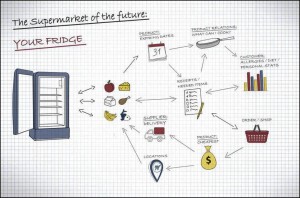The challenge for supermarkets today is balancing the needs of the customer against their ability to serve those needs. How are supermarkets and food manufacturers preparing their business for e-readiness? What about more customer centricity?
Currently, brands are not particularly good at serving consistent product information across in-store and online environments, leading to lower conversions and poor customer satisfaction. This shortfall is also preventing these brands from moving forward and innovating with new technologies. As a result, Master Data Management (MDM) is becoming a significant focus in effective omnichannel And Supply Chain initiatives.
Consider the large range of products that can be seen at the average grocery store. The sheer number of categories is staggering, before you even consider the quantity of items in each category. There’s little wonder of local brands are struggling to replicate this level of product data anywhere else but on their store shelves.
Furthermore, consider the various kinds of information supermarkets are expected to include. Then, add to this the kinds of information supermarkets could include in order to present a competitive advantage over and above the rest. Information types currently possible are: Ingredients, additives, Images and videos, marketing copy, gene manipulation information, references, product seals, allergens, nutritional facts, translations, product categories, expiration/use-by dates, variants, region-specific information, GSDN information and more.
Ultimately, supermarkets are already on the path of improving consumers’ shopping experience and a few of the emerging technologies indicate the way this industry will continue to evolve.


